Hi folks,
A few months ago, Anthony Campbell interviewed me for Crimespree Magazine. Anthony asked some of the most intelligent questions I've ever been asked. Here's the interview and if you're interested in glomming onto a copy of the magazine, you can buy the ebook copy on Amazon
here.
Not sure when the paperback copy will be available for sale, but when it is I'll post that info here.
Les Edgerton Interviewed
By Anthony Campbell
Issue 66 Crimespree Magazine
Les Edgerton isn’t the writer who is here to judge you;
over the course of a few emails we traded back and forth, I found him to be one
of the most receptive and open individuals I have had the chance to correspond
with.
With over 19 books ranging from hard-boiled crime
novels to business guides under his belt, not to mention the countless short
stories he has had published, Edgerton certainly is a busy man with the honest
work to show for it. Just this year, he informed he has “at least three more
works of fiction coming.” Readers may have heard of him from THE GENUINE,
IMITATION, PLASTIC KIDNAPPING, THE BITCH, THE RAPIST or THE DEATH OF TARPONS.
His
current short story collection, LAGNIAPPE, is available through Down & Out
Books. I was able to discuss two of his prior novels, THE RAPIST and THE
GENUINE, IMITATION, PLASTIC KIDNAPPING as well as history over two months of
emails.
Anthony Campbell: Thank you
again for taking the time to let me reach out and interview you. I wanted to
start with a few questions on your 2013 novel, THE RAPIST. This was your first
novel that I read and I found it to be quite the tour-de-force. Where did the
idea of the novel come from?
Les
Edgerton: The germ of the idea came from reading a Charles Bukowski short
story, “The Fiend.” At that point, it was just a glimpse of a potential story,
what Blake Snyder calls “the smell of the night on the road at dawn.” What does
the term mean? It’s that germ of an idea for a story triggered by any number of
stimuli. It can be a glimpse of something—the “smell of the rain on the road at
dawn” for instance. Driving home from a night of partying, hung over, you turn
onto a country blacktop and see a man hitchhiking in Army fatigues in the fine
mist that’s falling. Aha! There’s a story about this guy, you think. You begin
to imagine a character who’s passing through town—and you kind of visualize a
story about him. If you’re David Morrell, you end up with a story titled, FIRST
BLOOD.
Or,
you hear a story about a man whose mother has just died and the police came to
inform him and they’re put off by his seeming lack of emotion about the tragedy
and become suspicious. If you’re Albert Camus, perhaps you write a story based
on that anecdote you’ll title, THE STRANGER If you’re me, you come up with a story titled THE RAPIST.
All
of us as writers get ideas triggered like this and any number of other ways.
Thinking about the scene or idea makes us feel that there’s a story there.
Usually, when we see or conceive of a story idea that way, it elicits a
powerful emotion from us. The guy in our vision, standing on the road at dawn
in a drizzle, wearing fatigues, triggers a feeling of sadness, say. We have an
urge to write this guy’s story so that the reader will feel this same intense
feeling of sadness as we do.
And
so, we break out the Bic, turn on the ‘puter, put a piece of white paper in the
Underwood and begin to write. And it fizzles out.
Why?
As Blake Snyder says, we’ve simply fallen in love with an inspiration. That’s
all it is. There’s no story there yet mostly because we haven’t yet come up
with a story. All we’ve got is a guy standing in the rain on a blacktop and a feeling
that this
is a story. It’s gossamer. It’s not a story because we haven’t taken the time
to think beyond this image very much.
This
is what I suggest for those who get that “Smell of the rain…” kind of image and
inspiration for a novel. Sit on it for a while. Think about it. Kick the tires.
See if it has legs. See if you can see any depth in it. If something else comes
up and diverts your attention away from it, that probably means the idea really
wasn’t novel-worthy to begin with. But…the idea that won’t go away, that begs
to be told, that begins to unfold in your imagination over a period of time of
at least a month or two and hopefully even longer—that’s probably an idea that
has legs and one you can run that marathon with.
And
that’s what I did with THE RAPIST. Let it percolate in my brain for about ten years. I
won’t go through the entire process, but I kept niggling the original idea
around, adding a piece here, a piece there, until I had a bona fide story.
AC: How was constructing the character of Truman Ferris Pinter different
than others you have made before? Was it more difficult to fit into his voice
than others?
LE: Referring back to the
first question, as the story began to take shape in my mind, Truman became
clearer and clearer until I had him nailed. Not so much in a superficial
way—what he looked like, for instance, but how his mind worked. How his
background shaped him. What makes him different from most other rapists. Once I
had that, his voice became mine. As Whitman said, “We contain multitudes.” And,
we do. What I became was an actor playing a part. The more talent one has as an
actor, the better he or she can mimic others. The catalyst came when I realized
who he really was. Jesus Christ. Jesus Christ whose father, God, played a cruel
practical joke on. Oddly enough, this is where most reviewers missed the whole
point of the story. Since most see him as an unreliable narrator, they saw the
very last line as the absolute proof that Truman was an unreliable narrator. He
was…until the very last line, which was the exact moment his eyes were opened
and he saw clearly who he was for the first time in his earthly life. That was
the illumination and why it had to be the end of his story. Everything that
happened to him led to that precise moment when he realizes he’s Christ. And,
it’s a true realization, not the “truth” of an insane person—an actual, literal
truth. The veil has just been lifted.
AC: Many literary allusions abound and comparisons have been made to
Camus’ THE STRANGER. I
personally found the shape of this novel to fit in a similar vein as a Kafka
story or a Lynch film. Do you find the comparisons by reviewers to be
surprising? Have there been any which you had found to be of particular
interest?
LE: I understand the Camus
comparison but don’t think it’s accurate. I wrote it in a similar tone as THE
STRANGER mostly because both Meursault and Truman view their experiences from
an amoral standpoint. Also, many reviewers see my book as an existential book
and reviewers often believe Camus was an existentialist writer. He fought
against that opinion all of his life, at one point getting together with Sarte
to run an add stating clearly that they had nothing in common, philosophy-wise.
I am often referred to as an existential writer and I feel the same as did
Camus. So, in basing that on an inaccurate belief system neither of us claims,
it’s an accurate comparison. I think we’re both subject to a wrong take on our
philosophies. I can also see you comparing it to a Kafka story. On the surface,
it appears that Gregor and Truman are similar. Where I don’t think they are is
that Kafka’s character both starts and ends as an unreliable narrator, Truman
doesn’t, but to a certain mindset it appears they are the same. The reviewers I
thought came closest to what I intended were Cort McMeel and William Joyce.
AC: Although Truman doesn’t seem to particularly care
about the judgment society passes against him, by recounting his crime and
life, he constructs a testimony for the reader. He places the reader as the
judge. Does Truman care about what we, as readers, think of him?
LE: Although he claims he doesn’t, he’s an unreliable
narrator which is fairly clear early. Since the way a reader tells the
protagonist is an unreliable narrator is to match his actions to what he’s
saying, and since he claims he doesn’t care, his action in presenting his story
tells us he does care or else he wouldn’t have bothered telling his story.
AC: Still a few weeks after my first reading of this novel, the entire
last part and the ending of the novel resonate with me, making me still
question not only these parts of the novel, but more importantly, giving way to
re-evaluating how I considered some things in society. When you finished
writing this novel, did you feel like this was certainly something which
readers would take away from? Did you think it would make readers challenge
preconceptions and ideas they held?
LE: What I hoped for from
readers was based on a belief I possess. That there are thousands and thousands
(millions?) of ideas that are floating out there and that many of those ideas
are shared with many others. A zeitgeist, if you will, or a kind of race
memory. That there’s a field of electricity—kind of an invisible “soup” if you
will, that’s everywhere in the atmosphere, where ideas come from individual
minds and that enter other minds that are receptive. I think that as people get
older they cease being receptive to these ideas for lots of reasons—a religious
body of belief for instance, that’s been indoctrinated into their minds and
won’t tolerate deviances from the official canon; a physical experience that we
experience in childhood that gets sublimated as we grow older and that we learn
through ridicule by adults to deny in our hearts; awareness of other dimensions
as a child, that awareness trampled over again by seeing those kinds of ideas
routinely derided by everyone else as we grow older.
For example, I have very
clear memories of being able to leave my body and hover in space when I was a
child. That memory is one that got ridiculed and attacked any time I mentioned
it, so little by little I forced myself to look at the experience as just
something I dreamed so I could escape ridicule. And, then, in my twenties I
happened on some literature about a group called “Eckanar” which was composed
of people who swore they had out of body experiences just as I had and that was
the beginning of my belief in a zeitgeist. I believe that, little by little,
our existence becomes more and more an artificial one in which others gradually
imprison each of us into a world that isn’t actual but is induced by others who
are fearful of the actual world or who really don’t know what is real and what
isn’t but are afraid of admitting they think differently from those around them
for fear of ridicule or worse—worse being locked up in mental wards or in
prison, or even killed, or simply shunned by the majority of people in their
society as that is the nature of the mob—to reject anyone whose beliefs fall
outside what they consider “safe” parameters.
In other words, I came to
believe that we’ve all been brainwashed, not necessarily by some evil group of
people whose aim is to control or enslave people, but by a mindset that to open
oneself to ideas and thoughts outside the parameters of their particular
society will only lead to anarchy. I don’t see this as any “plot” by a few
people, but more as a natural thing for most people who sense that any thinking
they don’t share is dangerous. I don’t think this is an inherited way of
thinking but more of a learned behavior. That most people are fearful of anyone
different and to protect themselves they either invent or adopt stances toward
those they see as different. And, so, little by little we lose the insights we
had as children and learn to sublimate any ideas outside the main. I think this
may be what Jesus was talking about when he said that to enter Heaven, one must
become as a “little child.” To go back to that age where we all had original
thoughts and didn’t dismiss things out of hand that adults would consider
aberrant behavior.
I know this is a longwinded
reply to your question, but I think the question demands a lengthy answer to be
clear. A bumper sticker reply won’t suffice for what I see is a very
intelligent question about a complicated issue. I have to say that your
questions are a welcome change from many interviewers who often ask idiot
questions like “where do you get your ideas” or “what time of day do you write
in?”
To sum up my answer, I think
those readers who still challenge the status quo in their lives upon
encountering issues raised in the book will feel a sense of déjà vu in that
they’ve also had these same thoughts. To those who shrink from any challenge to
their core beliefs, I think they’ll not feel challenged in the least and may
even dislike it intensely.
AC: Just a year after this novel, 2014 saw the release of THE GENUINE,
IMITATION, PLATIC KIDNAPPING. This was a far different story, loosely based on
your experiences in New Orleans, offering more of an entertaining than a
thought-provoking read. Of all the characters in this novel, Cat is easily the
most memorable for me and jumps from page. Reading her dialogue was like
witnessing a character reach out of the book and slap me across the face,
especially considering how she appears to me as a beacon of hope. Did you
intend Cat to be a radiance that cuts through the underbelly of New Orleans in
this novel, as a reminder of a way out? Does Cat know you put her in this
novel?
LE: The portrait of Cat is
very much like the real Cat. I just wanted to remain true to her truly unique
character—in almost every sense she is a singular person. And, I doubt if
she’ll ever read it—she’s not a reader. Now, if it ever gets made into a movie,
I’m in trouble…
Cat was sold by her junky
mother to the head of the Mafia, Carlos Marcellus, for a hundred bucks when she
was nine or ten. He kicked her out when she reached the age of 12—way too old
for his tastes. She went down in the Quarters and survived by prostitution and
selling drugs and rolling sailors. She just isn’t afraid of anything. Here’s a
typical “Cat” story. One Sunday, we were just sitting around our apartment when
out of the blue, she asks me if I wanted to go down to the Quarters to roll
sailors. Why not, I said, so she called up another call girl friend, Jackie, a
black girl who lived in the Ninth Ward and we met her down at the Seaport Café.
I was there to provide “protection.” Yeah…
Well, they hooked up with
this Norwegian sailor and took him back in the little alley that goes to the
Dungeon and Jackie gave him a blow job. He wanted Cat to do him next, but the
girls demanded payment first. Fuck you, he said, the first thing he’d said in
English as he’d been pretending not to speak the language. I was coming toward
them to provide that “protection” when Cat said, Well, fuck you too, and she
pulled out her switchblade (which I’d given to her for a birthday present) and
stuck it in his stomach. He gave a little sigh and went down. I told Cat to
check his socks as that’s where I kept my money when I was in the Navy and sure
enough, he had wad of bills she grabbed and we beat feet. When we got a couple
of blocks away and ducked into a bar, Cat started to divvy up the money but got
really pissed off. Except for a twenty, it was all Norwegian money. Fucking
funny money she said, and told Jackie to keep it all. We never found out if the
guy was dead or not. Lots of things like that never make the paper. If
everything like that made the paper, the tourist business would dry up.
The next Sunday Cat asked me
if I wanted to go back into the Quarters with her and Jackie, and I told her
she’d have to go without her “protection.” Fuck that happy shit…
AC: The setting in this novel also really stuck out to me. The
descriptions Pete provides to develop the layout and scents of New Orleans
stuck me right alongside him in his criminal attempts. How did living in New
Orleans stick to you? Did you fall in love with the city in the same way Pete
did?
LE: I’ve always loved New
Orleans from the time I lived there as a child to when I returned as an adult
and lived there many years. It’s a dirty, corrupt, dangerous, gorgeous,
bewitching town and so unlike any other city in America. It contains all of the
excesses that are interesting. I can’t imagine anyone ever being bored in The
Big Sleazy.
AC: The crux of the novel examines the idea you lay out of the abstract
and the real in regards to a million dollars or any large sum of money for a
kidnapping. Do you find there are other things where the illusion or
abstraction doesn’t pan out to what actually happens? This examination of money
in such a way I found to also extend to a question of Pete’s status as a
privileged ex-baseball player navigating New Orleans in an entirely different
realm than those who live in dire poverty and straits. Did you anticipate an
economic disparity to grow between characters? The best example of what I’m
referring to would be in regards to Pete being broke, but saying he never had
to do desperate measures to get food, whereas Cat has been through hell and is
still trying to grow as an individual.
LE: First, Pete wasn’t any
“privileged ex-ballplayer.” He was stone broke and had been for the last ten
years after he’d been drummed out of baseball. But, he’d always been a hustler
and if you’re a hustler you’re never going to be truly poor. There’s just too
many lames out there to make a buck from. He and Cat were basically the same.
She was a call girl and had been a prostitute so she was in the same financial
boat as Pete. Both knew how to survive on the street.
You very accurately named the
crux of the novel. In a period of my life that I’m ashamed of, I sold life
insurance. (Don’t like to reveal that as that was one of the few lame periods
in my life.) The “million dollars on the kitchen table” was the first thing my
boss taught me. When you’re trying to sell a million-dollar policy” to someone,
he sees it as an abstract thing. It just isn’t real to him. But, if you lay out
an actual million dollars in cash, it immediately becomes a very real thing.
And, that’s what my manager did. He’d open a suitcase and dump out a million
bucks. Of course, it was just Monopoly money, but seeing that mound of
hundred-dollar bills almost always led to a sale. The same thing happens in a
kidnapping. Up until the money’s laid out on the kitchen table it’s largely an
abstract, meaningless number. The victim is all gung-ho up to that point to get
his beloved Gladys back, but once he sees that mound of bills, all of a sudden,
he has a change of heart. That’s when he calls the cops, the Fibbies. He claims
he loves his honey Gladys, but it’s pretty clear which he loves more…
AC: Finally, is the inclusion of the crazed inmate a sly reference to THE
RAPIST? Or just a minor re-examination of a similar element?
LE: Pretty sharp, Anthony!
Yep. Same character. He’s based on a guy I met in the New Orleans jail and what
he did is what the real guy did. I just like the guy…
AC: Where did you take your inspiration to tell stories from? When you
were a younger man, did you find yourself always being the one in a group to
entertain others with amusing stories?
LE: My inspiration mostly
comes from my own life. I’ve purposely put myself in situations where both good
and bad things can happen. A lot of them were bad but those were the ones I
gravitated toward the most. Graham Greene said writers have a piece of ice in
their hearts. What Greene is referring to is the art of detachment from the
emotional to be able to observe an event and describe it accurately and
dispassionately. It’s what allows us to write dramatically instead of
melodramatically. It is simply the ability to maintain alertness and keep your
own emotions at bay when describing events, especially events that carry
emotion personally. It’s not “coldness” or “calculating observation” as some
would say. It’s simply maintaining the reporter’s stance when writing drama so
as to maintain the drama and not tip over into melodrama. Having that piece of
ice in our hearts is what allows the good writer to lower the volume instead of
raising it. Thereby creating true and deep emotion and not surface emotion,
cheaply and easily wrought. That melodramatic writer is who Oscar Wilde was
referring to in his famous criticism of that most melodramatic writer of all
time, Charles Dickens, when he said, “One must have a heart of stone to read
the death of little Nell without laughing.” Indeed.
And, yes, I was that guy who
took over the conversation. I had (have) a desperate need to hold the floor.
Mostly to “play the dozens” which is a disappearing art because of that
political correctness bullshit. It’s probably lack of a healthy ego—I find I
need constant confirmation that I have value—laughter and grins being the coin
of that realm.
AC: Do you believe there is a power books and written word is able to
hold other mediums of expression lack?
LE: Certainly! I subscribe
to Marshall McLuhan’s theory of hot and cold media. The media is judged by the
extent of the audience’s participation. In hot media, the audience is passively
consuming what is presented. In cool media, the audience has to actively
analyze and interpret what is presented to make sense of what they see and
hear.
Hot media are those that
affect one sense and the participant is required to bring their imaginations
and stored knowledge to bear to have a good experience. Examples of hot media
are books and radio. Cool media is media that affects two or more senses,
leaving less for the participant to bring to the experience. An example of cold
media is television. By utilizing more than one sense, much of the work is done
for the participant; therefore, one’s participation is minimal. You sit back
and let the media do all the heavy lifting.
Experiencing a television
show requires little from the participant who remains passive. Reading a book
is a participatory exercise in which one has to do some of the work. Therefore,
reading a book is a more intense experience as the reader has to bring to bear
the whole of his imagination, memory and intellect. And, when the participant
is required to do some work in order to make full use of the experience, it
becomes his or hers and he or she “owns” the interpretation of it. This is
precisely what philosophers and educators are referring to when they decry “the
dumbing down of America.” That’s because watching television does very little to
affect the mind. And that’s the power of books over other mediums.
AC: How do you describe your role as a writer?
LE: I have several duties as
a writer. One is to write entertaining stories to the best of my ability.
Another is to always write as honestly as I am able to—my mantra is, “If it’s
fiction, it has to be true.” That doesn’t mean being detail-true but it means
my personal mandate is that fiction be written honestly and not shirking
anything in that fiction that intentionally misleads or lies to the reader. My
main duty over everything is to write the best fiction I am capable of and to
never take short cuts or offer up anything that is in any way less than I am
capable of. That is my stock in trade and I hope never to write anything that
doesn’t reflect an honest and true heart.
AC: What lessons would you have to impart on younger authors?
LE: I’ll steal this from Jim
Harrison, if you want to become a writer read the whole of western literature
for the past 400 years. If you live long enough, read the whole of eastern
literature for the same period. For, if you don’t know what passed for good in
the past, how can you know what’s considered good in the present.
AC: What projects are you currently working on? Which book are you most
proud of?
LE: I’m working on about ten
projects currently. Working on three short stories for various anthologies I’ve
been invited to submit to. Have four novels I’m working on. I’m writing a new
craft book. Am preparing notes for appearances at several writing events I’ve
been invited to present at. For instance, I’m appearing at Lee Lofland’s
Writer’s Police Academy where he’s scheduled me to give at least two talks. I’m
preparing notes for those so it will appear that I’m talking extemporaneously.
And, the other day he asked me if I’d serve as the auctioneer for an auction
they hold, so of course I have to do research so I won’t look too much as a
doofus. That means I have to watch episodes of Storage Wars so I can learn how
to be an auctioneer. Us writer types have to have many skills…
I’m working on two main
projects—a new novel titled HARD TIMES
based on a short story of that same title. And, my memoir, titled Adrenaline
Junkie, which has been a true labor of love and one in which I don’t dodge
anything, but include both the best and the worst of my life. It’s the book I’m most excited about and hope when it comes out it’ll be
viewed as the best work of my life. I’ve had several publishers want it, but
I’m waiting for a Legacy 5 publisher so that it might end up on bookshelves and
be available for reviewers reviews
by the best reviewers.
There are two books I’m the
proudest of: THE RAPIST and THE BITCH.
Fans who would
like to reach out to Edgerton can email him at butchedgerton@comcast.net. His newest short story collection, LAGNIAPPE, is available through Down & Out Books at
https://downandoutbooks.com/bookstore/edgerton-lagniappe/.





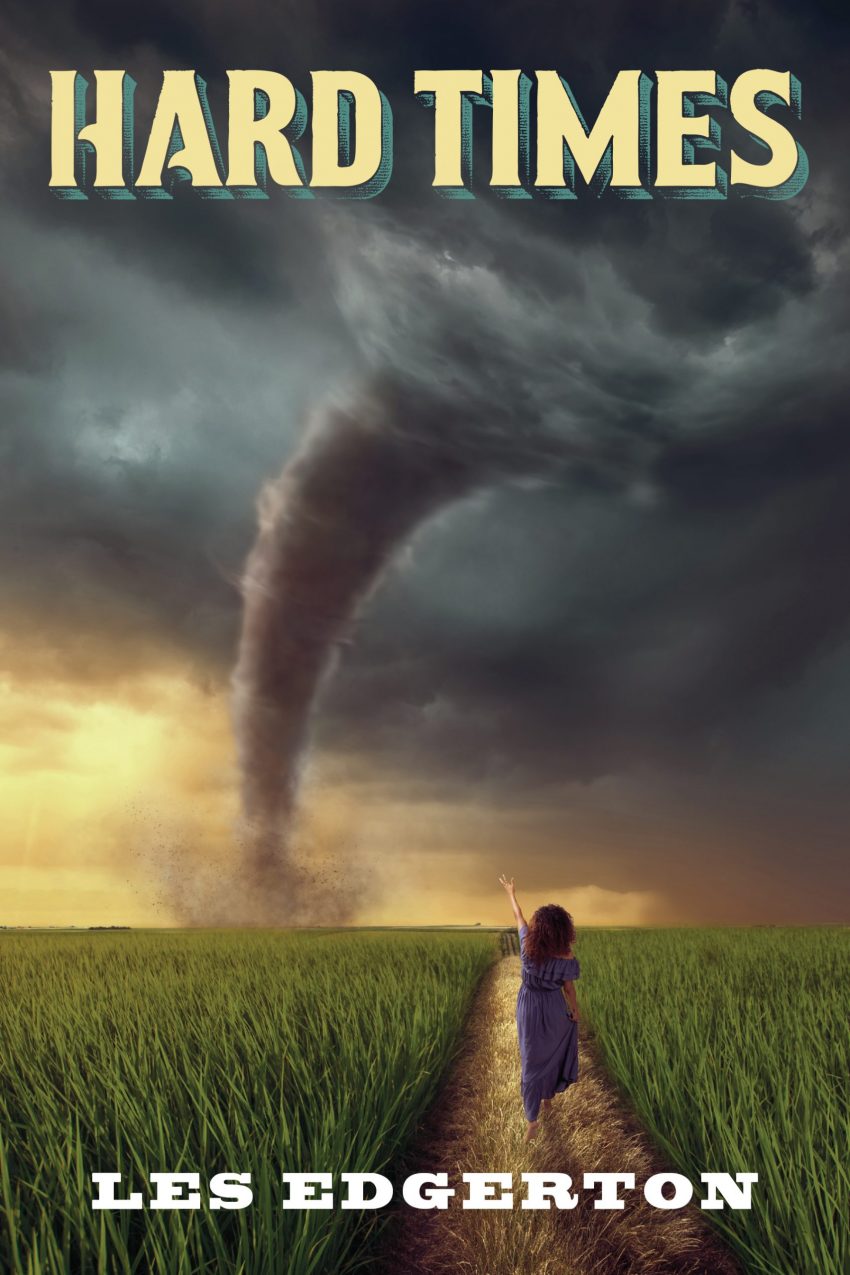
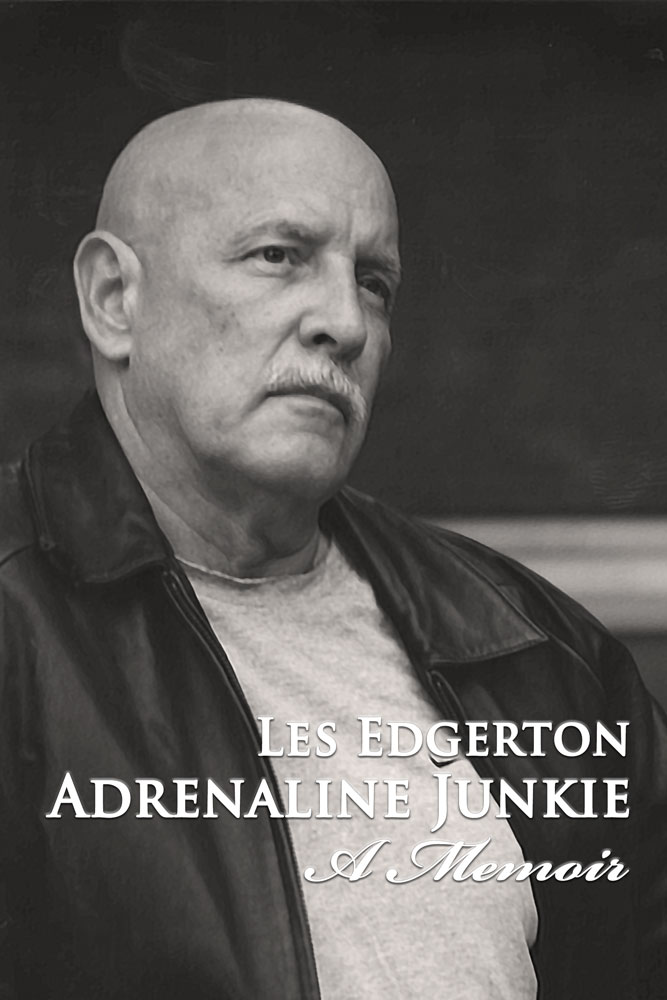
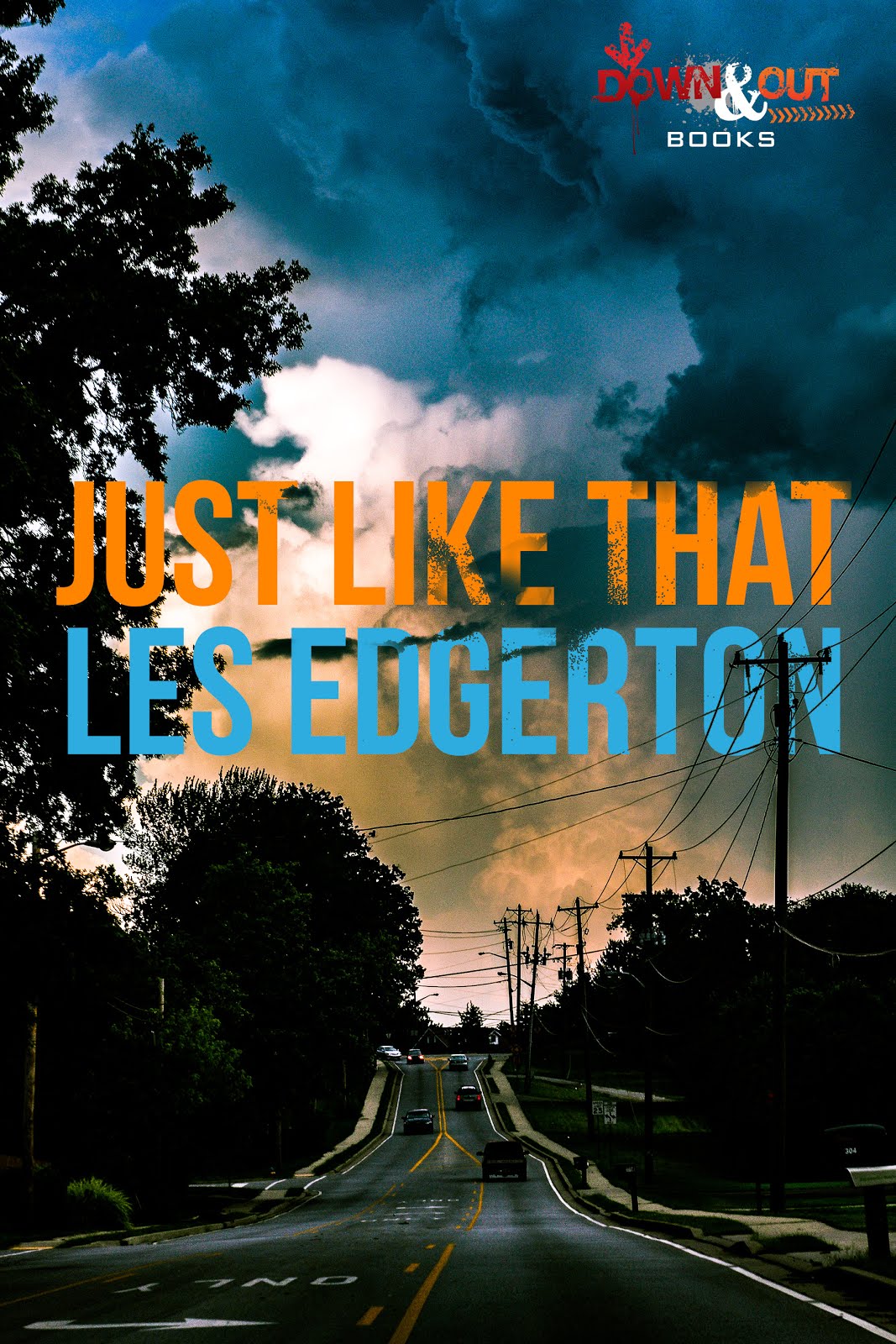

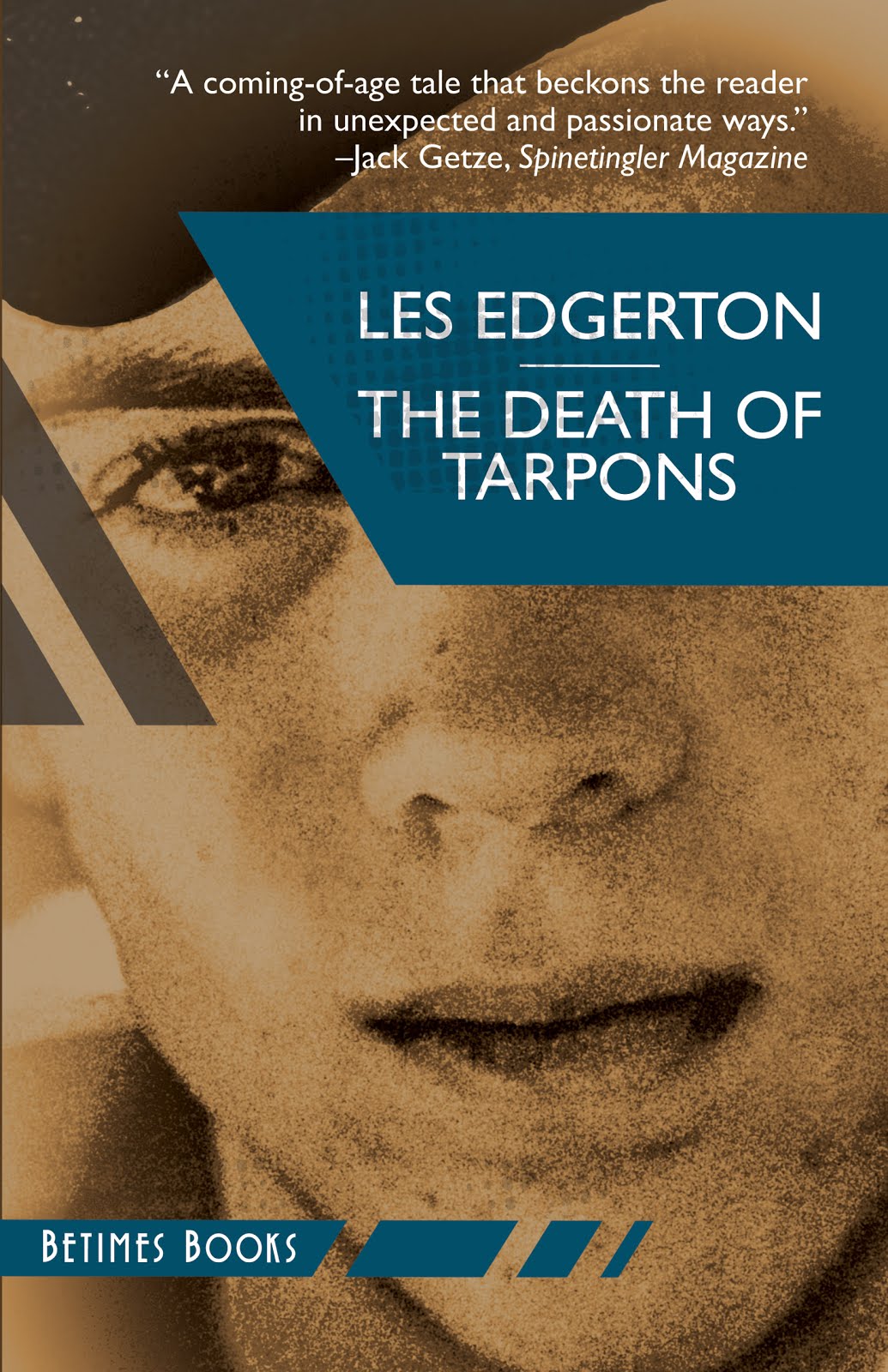

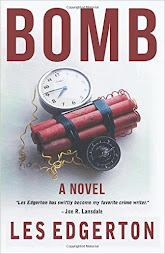
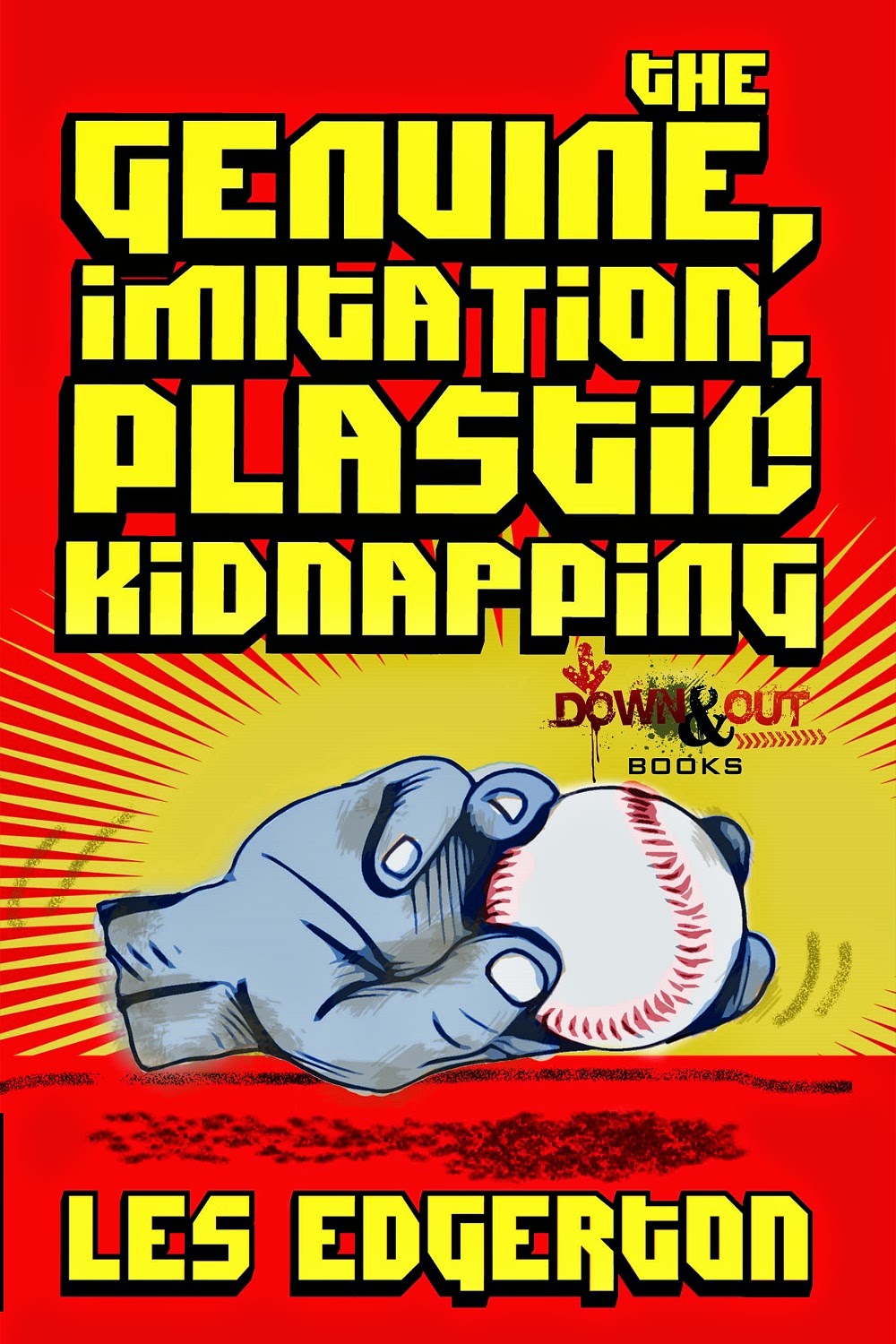

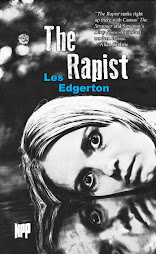
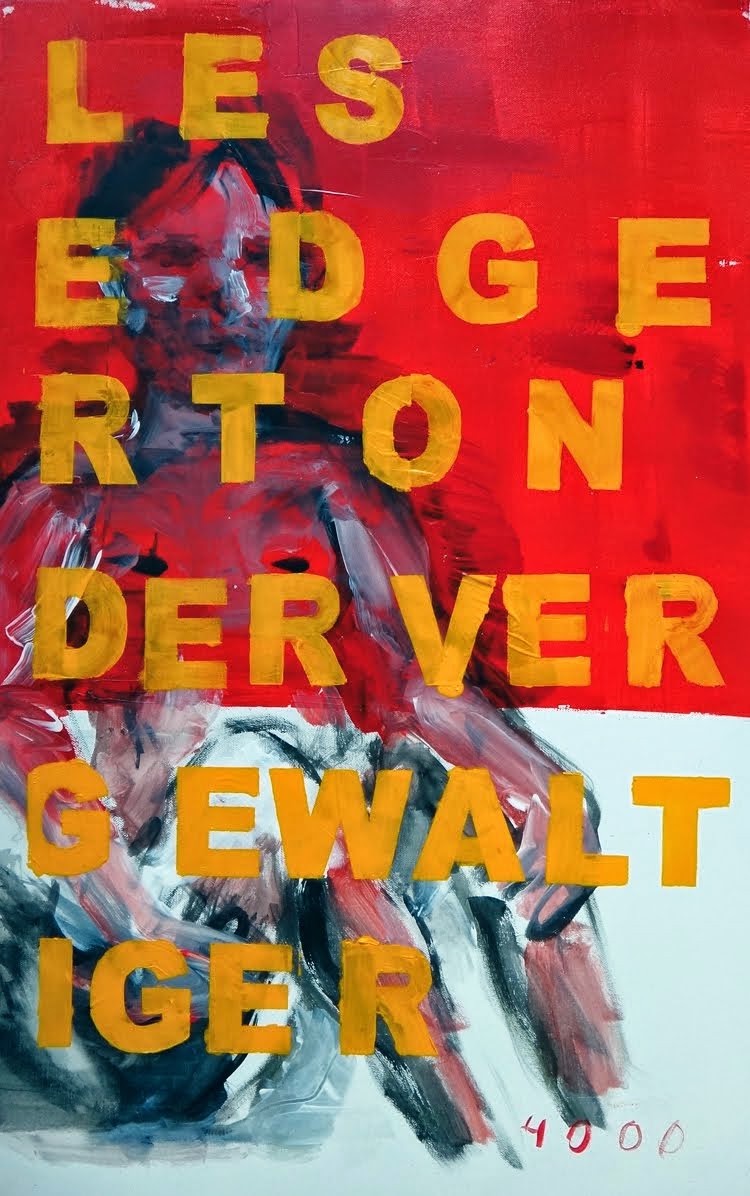
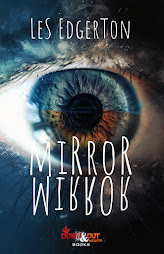
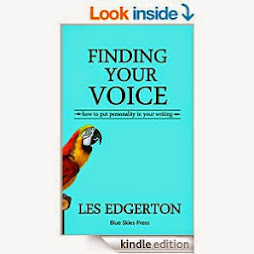
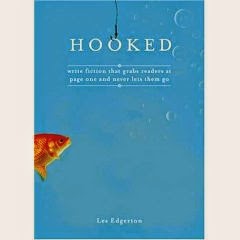

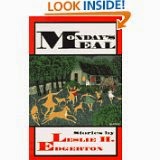
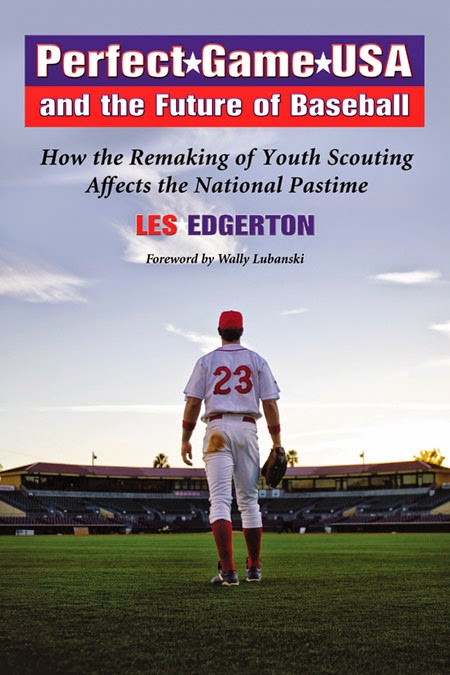
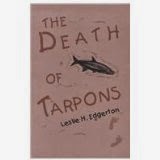







2 comments:
I am so amazed by your lovely post.Thanks for sharing
clipping path service
Thanks again for this post
clipping path service
Post a Comment